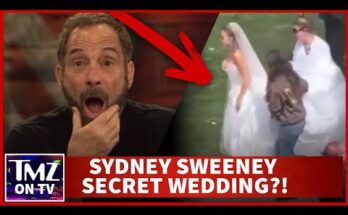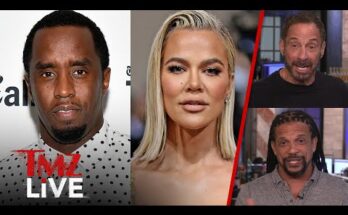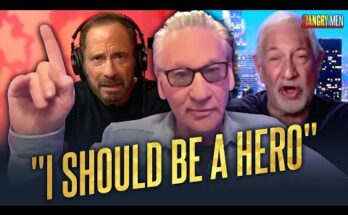Go here for Part I.
Conrad Murray’s trial for manslaughter predictably became about Michael Jackson instead of his doctor because the use of Propofol was unusual and the patient was famous. In court, the displaying of medication bottles was high drama and the media pounced and rushed to publish “Michael Jackson’s addiction.”
A close look at the dates, the number of pills prescribed measured against the number taken, number left and span of time the pills sat in that bedroom proves not that Jackson was an addict, but that he was actually non-compliant with medications he was prescribed. But that isn’t sexy; and it’s all about sexy and getting viewers for a trial that was predicted to be “bigger than the Casey Anthony trial.” Except it wasn’t. Hysteria fatigue, perhaps? Have we had enough?
Pundits on HLN seemed to push the “addict” label because it suited their agenda to promote books and careers. “Michael Jackson” has promoted many books and careers involuntarily as people conscripted his name for their own purposes. HLN was no exception. An addiction specialist physician jumped on the same “addict” meme despite the conflicting information between addiction, bottle labeling and usage, and despite medical records entered in evidence that were unsigned and confusing. The physician’s questionable records were allowed in court but the physician was not and he wasn’t made able to explain his treatment of Jackson for facial procedures to reconstruct his face. Jackson had Vitiligo and Discoid Lupus — the same disease which has left the entertainer Seal, facially scarred. It is entirely reasonable that Michael Jackson’s face be treated and re-sculpted; he made his living on stage.
That same physician also hypothesized that the nightly use of Propofol accounted for the poor condition of Jackson’s lungs while it was well known to insiders that Michael Jackson had a Tryptophan Synthetase Deficiency which is a lung disease characterized by a lack of protein for lubrication. Jackson’s fans could have enlightened any one of these talking heads but they didn’t fact check nor ask fans. If you want to know something about a sports or pop culture figure, ask fans who know everything about them.
In fairness to the pundits, the coverage could have been much worse and the fans could have been depicted in a much poorer or darker light. Unfortunately the fringe elements of fandom were highlighted and that included conspiracy theorists who believe that Jackson is alive and in hiding. And for the most part, fans behaved well except for an occasional scuffle.
Mainstream Jackson fans who get less attention than the vocal fringe, are articulate, thoughtful, bright, and interested in justice and vindication. Many are professionals who contribute to society, pay their taxes and raise children in the suburbs and cities. They have an interesting story to tell society should anyone ever want to listen. What they have to say is shocking.
The trial, it seems was all about Michael Jackson despite Murray’s dalliances are well known — seven children with six women, his methodology even in his clinic appeared reckless to other physicians and one who ventured: “The only thing Murray could have done that was more dangerous was to push Jackson out of an airplane without a parachute.” And what doctor ships a stockpile of medication to a private residence? What doctor using a dangerous drug does not have the proper emergency equipment required for safety and for resuscitation when he is the only one there in case something happens to the patient? The drug labeling requires it as do protocols. A simple regulator pump that would have saved Jackson’s life by regulating the flow of Propofol according to body weight and dosage guidelines would have cost $1,500 of a salary one hundred times that per month. Murray owned a clinic; if he could order Propofol in bulk, he could order medical equipment that would have saved Jackson’s life.
Yes, it was the Michael Jackson trial because once again, Jackson was put on trial even in the afterlife. And it’s ironic that the most compelling piece of evidence came not from the prosecutor or from the defense, but from Michael Jackson himself. Jackson, whom a nurse anesthetist says sounded like he was under the influence of Propofol — with no cameras filming, no media in attendance, was clear about his motivation, his intention and his future plans even in that sedated state. He said:
“Elvis didn’t do it. The Beatles didn’t do it. When people leave my show I want them to say ‘I’ve never seen nothing like it in my life. Go. Go. I’ve never seen nothing like this. Go. It’s amazing. He’s the greatest entertainer in the world.’ I’m taking that money, a million children, a children’s hospital, the biggest in the world. Michael Jackson’s Children’s Hospital.
Gonna have a movie theater, game room. Children are depressed — in those hospitals, no game room no movie theater, They’re sick because they’re depressed, Their mind is depressing them I want to give them that, I care about them angels. God wants me to do it. God wants me to do it. I’m gonna do it, Conrad.
Don’t have enough hope; no more hope. That’s the next generation that’s going to save our planet starting with – well talk about it. United States, Europe, Prague, my babies.
They walk around with no mother. They drop them off, they leave — a psychological degradation — that. They reach out to me — please take me with you.
I want to do that for them. I’m gonna do that for them. That will be remembered more than my performances. My performances will be up there helping my children and always be my dream. I love them. I love them because I didn’t have a childhood. I had no childhood. I feel their pain. I feel their hurt, I can deal with it.
‘Heal the World,’ ‘We are the World,’ ‘Will You Be There?’, ‘The Lost Children.’ These are the songs I’ve written because I hurt, you know, I hurt.”
A children’s hospital or healing center was Michael Jackson’s dream. And this is not the first time the subject of medical treatment and healing of children has come up in Michael Jackson’s legacy. When Jackson’s slurred declaration was first reported Jane Velez Mitchell of HLN declared on air that this recording of Jackson proves what Michael Jackson fans have been saying all along — that Michael was misunderstood and mischaracterized and Neverland Ranch was misrepresented to the public. She called the conversation vindication for Michael Jackson. She only said it once as that very same day people who made money with “hit piece” biographies chastised her on Twitter and she went silent.
Conrad Murray is not the first nor the last person to be privy to Michael Jackson’s dream for children . In an article by Italian journalist Silvia Bizio, Anjelica Huston who played opposite Jackson in the Captain EO film for Disney, accidentally ran into Michael Jackson about a month before he died. They hugged, hunkered down in a room together and caught up on each others’ lives.
Huston remembered Michael as being tender and fragile, having trouble mustering up enough anger to carry out his role as Captain EO with a spaceship crew who sings ‘We are here to change the world.’ She said it was as if anger didn’t live in his DNA. He needed her there, in costume and sneering her lines to play off her villainous character. Huston said he seemed even more fragile especially emotionally, during their brief encounter. She put her arms around him; she says:
“We talked about how he had felt humiliated by the accusation of sexual harassment and about the sorrow for the loss of Neverland, where he had lived many years. I remember his words: ‘They ruined my dream. I had this dream, perhaps childish and foolish, a place designed to celebrate the innocence of that childhood that I never had, and they took it from me. I love children, I could never do them harm. I spent all my life loving them and trying to do good things for them. The libel of harming a child–that breaks my heart. It is an unbearable pain, those accusations are unjust and terrible…’ As he said these things, he began to cry. I held him in my arms…He was so skinny and frail.”
Jackson told her he was preparing for the London concerts. She remembers:
“He was training hard because he would have ‘no more hope to be loved back again.’ He wanted to be let back in to the hearts of the public after his public lynching for something he said he didn’t do and a jury of his peers agreed with. Huston goes on: “he was thin and pale; I could feel so much pain in him for the past and a lot of anxiety and uncertainty for the future.”
When asked by Bizio, “What do you think really killed Michael Jackson?’ Anjelica Huston didn’t hesitate: “Michael had a broken heart. For this he died. The truth is that they broke his heart.”


